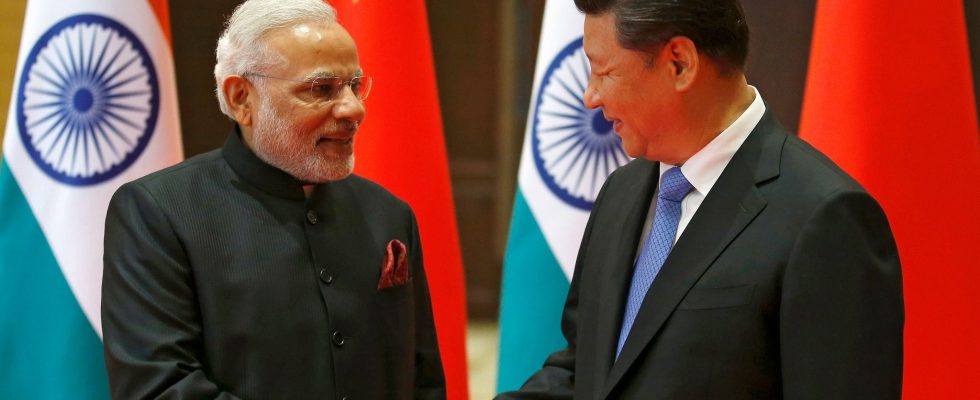After a first round at the end of November, the Bhutanese are called for a second time to go to the polls to elect the 47 deputies who will sit in the National Assembly. An election watched like milk on fire by two giants with excessive ambitions who share a common border of 3,500 kilometers: China and India.
For several years, these two rivals have been eyeing the strategic borders of this kingdom populated by 800,000 souls. And for good reason: Bhutan, caught between India and China, constitutes “one of the last obstacles” to the Chinese attempt to exert influence in South Asia, Harsh V explains to AFP. Pant, professor of international relations at King’s College London.
China is gaining ground
Although China and Bhutan do not currently maintain any formal diplomatic relations, Beijing is trying to find its way into this South Asian country the size of Switzerland and highly strategic. Last October, a “cooperation agreement” was signed between Bhutan and China after negotiations on their northern border. The Chinese Ministry of Foreign Affairs particularly stressed to AFP “the determination [de Pékin] to work for a rapid resolution of the border issue and the establishment of diplomatic relations [avec le Bhoutan]”.
A rapprochement viewed unfavorably by New Delhi, which considers the buffer state to be its private preserve. Concern increased in December, after the publication of a report from the British think tank Chatham House. Satellite photos reveal the existence of what the institute describes as an “unsanctioned settlement construction program” by China in Bhutan’s northern border region. And which could “become a permanent Chinese territory”, in the event of a border agreement.
Beijing hopes in particular that a text “consolidating its gains in northern Bhutan could lead to formal diplomatic relations and the opportunity to attract Thimphu into its orbit”, specifies Chatham House. “[Mais] such an agreement would have far-reaching implications for India”, notes Harsh V. Pant. And even more so that a China-Bhutan partnership seems “imminent”, warns Suhasini Haidar, editor-in-chief of the daily’s diplomatic service The Hindu.
A Chinese influence to put into perspective
If many observers raise the specter of a considerable advance by China in the enclave, India remains Thimphu’s main commercial partner as well as its main source of investment. In December, Bhutan’s King Jigme Khesar Namgyel Wangchuck announced the creation of a special economic zone along its border with India. In addition, the local currency is more pegged to the Indian rupee.
Reason why the kingdom knows how crucial its relationship with New Delhi is. Especially since India has announced a series of transport projects, notably a railway line to Bhutan, which largely depends on Indian investors.
The two candidates vying for the post of Prime Minister of Bhutan are also pleading for a rapprochement with neighboring India, in order to revive the country’s economy, whose gross domestic product barely reaches 3 billion dollars. “Any government coming to power will seek to strengthen ties,” believes Suhasini Haidar.
India on guard
Despite this relational proximity, New Delhi remains on its guard. A distrust which is part of a broader context of hegemonic desire of Beijing, which is increasing commercial agreements and loans with the countries it considers to be its zone of influence. Including Bangladesh, Nepal, Maldives and Sri Lanka.
Note that this renewed tension of which Bhutan is the epicenter echoes an episode that occurred in 2017. Indian and Chinese soldiers clashed for seventy-two days on the contested Doklam plateau, at the junction of Indian and Chinese territories. and Bhutanese. Already in 1962, the two states fought a blitzkrieg at the end of which Indian soldiers were humiliated by Chinese troops. Like a sense of deja vu.
